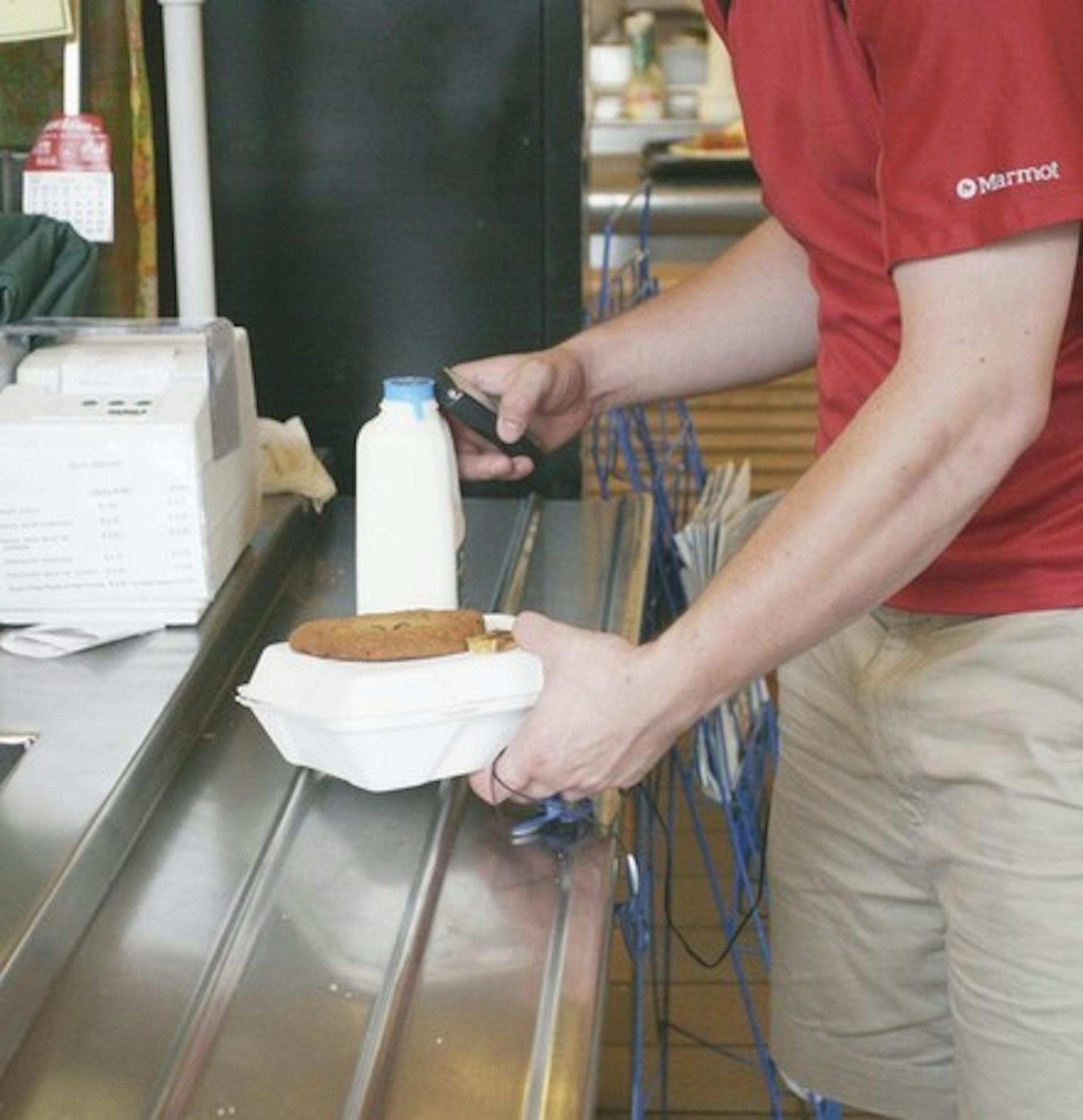Jim Merkel, the College's recently hired Sustainability Director and a member of the Sustainable Dining Committee formed in May, said the boxes are a trial measure that could become permanent this September, depending on student feedback.
The boxes are receiving mixed reviews from students.
"I'm all for sustainability, but it's harder for us," Meredith Druss '08 said. "When I bought pasta the sauce spilled out of the box because the box doesn't close as securely."
In addition to complaining about Food Court cashiers needing to take the time to open the opaque boxes, she also said the cardboard absorbs pasta sauce and salad dressing, a frustration the plastic containers do not induce.
"You can't keep a salad in the refrigerator any more because the box will get soggy and the food won't keep as long," Druss said.
Erica Jones '08 said she preferred the clear plastic containers as well, but for different reasons.
"You can see what other people are eating, and with cardboard I feel awkward going up to people and asking, 'What'd you get?'" she said.
"We've had a few complaints," Merkel said, adding, "we're trying to work through those issues."
One alternative would be to use reusable Tupperware for take-out. According to Merkel, the special Tupperware containers that could withstand high temperatures without melting cost 20 dollars a piece, so it would be important for students to return them.
Merkel said he would also like to see fewer take-out containers used overall.
"Some students take a take-out container and still eat in. It's wasting resources," he said. "It's a social issue, and they take the to-go container because they're not sure they're going to find a friend to sit with."
He offered one solution: "maybe making it cool to sit with someone you don't know."
The 10-person Sustainable Dining Committee, composed of students, alumni and Dartmouth Dining Services administrators, internally formed a social marketing subcommittee to encourage students to dine more sustainably. Nalgene water bottles with information about sustainable dining printed on the side, for example, might be distributed.
Armed with his own personal lunch kit consisting of a Tupperware container, cloth napkin and metal silverware, Merkel tries to dine sustainably every day. He would like to see students adopt similar practices, such as bringing eco-mugs and Nalgenes to dining halls.
To make dining halls more sustainable, "We can do a better job as administrators" he said, "and students can boost their responsibility factor."
The Sustainable Dining Committee also spawned two other subcommittees, one focused on procuring local organic foods and the other on finding the best take-out container.
Merkel hopes that compost bins and recycling bins will replace dining hall garbage cans altogether.
"We do have a compost facility at Dartmouth, which is unique -- not many colleges have it," he said. "But we're not sending enough stuff there."
Not even the new containers. Though the DDS staff composts any biodegradable materials left on dining hall trays, all cardboard containers thrown out are still sent to landfills. Home Plate Dining Hall will introduce compost bins alongside the garbage cans and recycling bins within the next few weeks where their effectiveness will be tested on summer camp students. If the students throw the non-biodegradable materials into the compost bins, the compost will be contaminated and rejected from the facility, Merkel said.
"If we see ninth-graders going through with no instruction and having no problem with how to do it, then it's probably pretty good," he said.
Home Plate, the current focus of the committee, will serve as a prototype for the College's new dining halls. It has already made strides to become more sustainable, serving cookies and muffins unwrapped from a glass case rather than in cellophane wrapping and replacing small condiment packets with bulk containers.
"We're streamlining the whole flow of things which you would call output, with compost and recycling and minimizing the trash," Merkel said.




